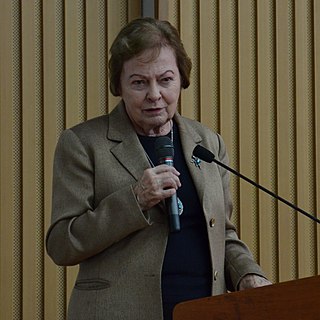 W
WSamuel Alexander was an Australian-born British philosopher. He was the first Jewish fellow of an Oxbridge college.
 W
WBenjamin Samuel Bloom was an American educational psychologist who made contributions to the classification of educational objectives and to the theory of mastery learning. He is particularly noted for leading educational psychologists to develop the comprehensive system of describing and assessing educational outcomes in the mid-1950s. He has influenced the practices and philosophies of educators around the world from the latter part of the twentieth century.
 W
WWolfgang Brezinka was a German-Austrian educational scientist. He served as Professor of Pedagogy at the School of education of the University of Würzburg, as well as at the Universities of Innsbruck and Konstanz.
 W
WJohn Dewey was an American philosopher, psychologist, and educational reformer whose ideas have been influential in education and social reform. He was one of the most prominent American scholars in the first half of the twentieth century.
 W
WArthur Engel is a German mathematics teacher, educationalist and prolific author. His work has been translated into several languages. He has played a role in national and international mathematical competitions since 1970. Engel was one of the first to recognize the impact of electronic calculators and computers on mathematics teaching. In his view the focus should shift from learning how to apply algorithms, which could now be done by the machine, to learning how to build and test algorithms. He was also early to see the value of using computers to draw students into an interest and understanding of mathematics.
 W
WRobert Lee Gaudino was an American political scientist and educational theorist who worked as a professor of political science at Williams College from 1955 until his death 1974, also serving as the Peace Corps training director at Williams.
 W
WKurt Matthias Robert Martin Hahn was a German educator. He founded Stiftung Louisenlund, Schule Schloss Salem, Gordonstoun, Outward Bound and the United World Colleges.
 W
WJean-Pol Martin studied teacher education for foreign language teachers in Germany, and developed a teaching method called learning by teaching. He spent most of his career at Catholic University of Eichstätt-Ingolstadt and was an außerplanmäßiger Professor there when he retired in 2008.
 W
WAlexander Sutherland Neill was a Scottish educator and author known for his school, Summerhill, and its philosophy of freedom from adult coercion and its community self-governance. Raised in Scotland, Neill taught at several schools before attending the University of Edinburgh in 1908–1912. He took two jobs in journalism before World War I, and taught at Gretna Green Village School in the first year of the war, writing his first book, A Dominie's Log (1915), as a diary of his life there as head teacher. He joined a Dresden school in 1921 and founded Summerhill on returning to England in 1924. Summerhill gained renown in the 1920s–1930s and then in the 1960s–1970s, due to progressive and counter-culture interest. Neill wrote 20 books. His top seller was the 1960 Summerhill, read widely in the free school movement in the 1960s onwards.
 W
WNel Noddings is an American feminist, educator, and philosopher best known for her work in philosophy of education, educational theory, and ethics of care.
 W
WFriedrich Siegmund-Schultze was a German academic working in theology, social pedagogy and social ethics, as well as a pioneer of peace movements.
 W
WRudolf Joseph Lorenz Steiner was an Austrian philosopher, social reformer, architect, esotericist, and claimed clairvoyant. Steiner gained initial recognition at the end of the nineteenth century as a literary critic and published philosophical works including The Philosophy of Freedom. At the beginning of the twentieth century he founded an esoteric spiritual movement, anthroposophy, with roots in German idealist philosophy and theosophy; other influences include Goethean science and Rosicrucianism.